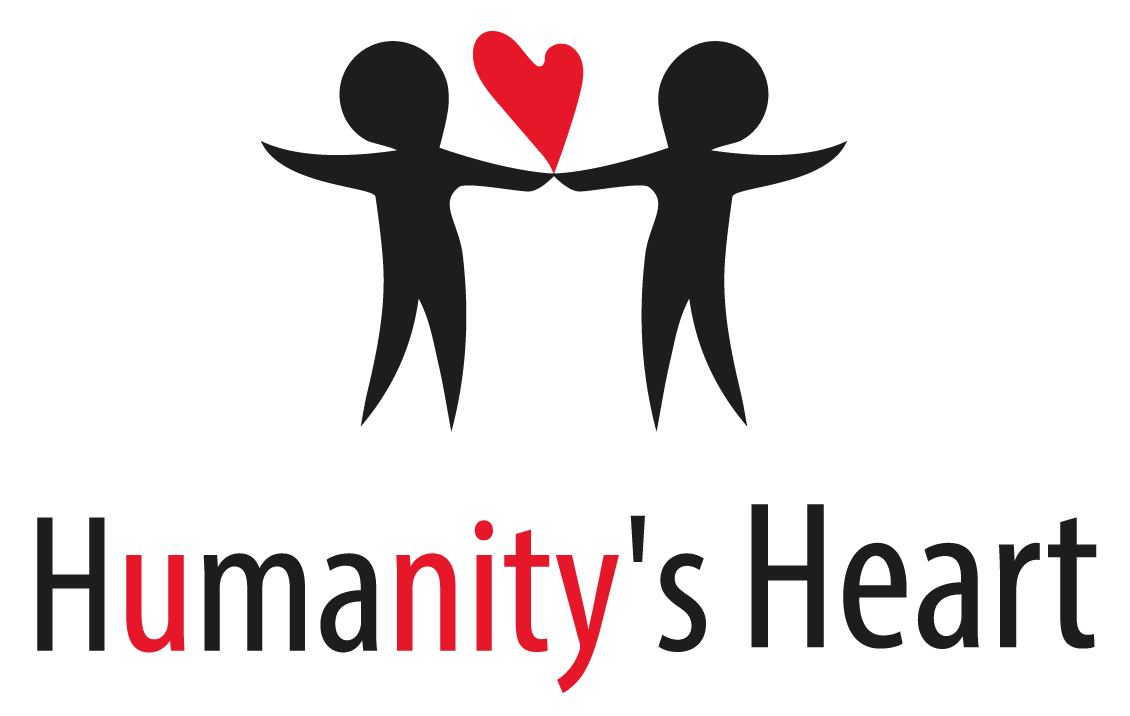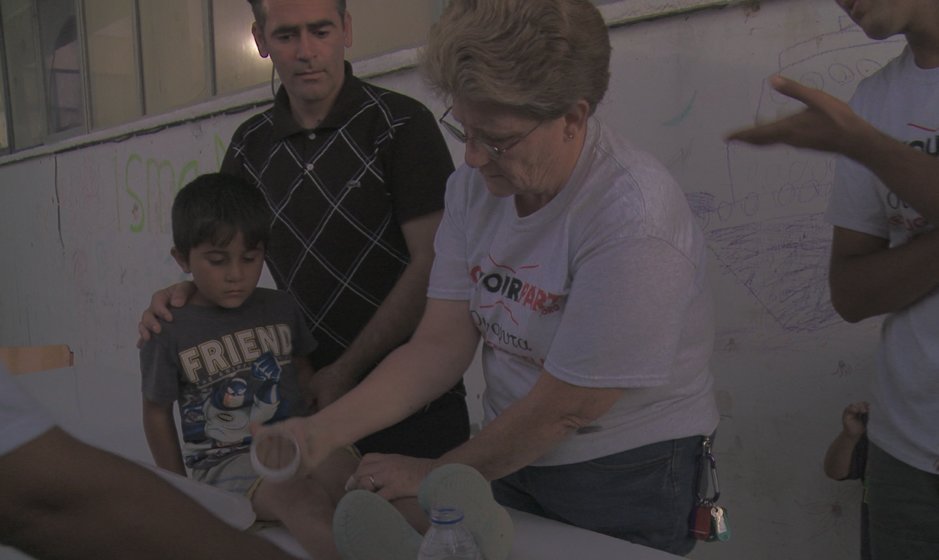When reflecting on the work of witnessing, sharing and inspiring on the red thread of humanity in the refugee crisis, what came to heart many times during our work, is the role of women. Both refugee women and volunteer women meeting in the relational spaces in the refugee crisis.
Meeting these women, made me reflect on Mary, the Mother of Jesus and her willingness to surrender to the will of God. It was through her implicit trust in our Source which brought forward the birth of Jesus. They say, “Let the Mary of your body give birth to the Jesus of your sou.” Could this crisis be birthing love and compassion on an epic scale?
Undeniably there have been many male volunteers and their contribution cannot be underestimated eg
Although returning from filming, it fascinated me further to learn that in arabic the names of God “Rahman” (The compassionate) and “Rahim” (The merciful), the root letters of both R-H-M mean “womb.” It stirred a deeper reflection into how the outpouring of the heart towards humanity, hasn’t necessarily been met at an intergovernmental level yet there has been an outpouring of compassion, generosity and love from the hearts of ordinary people, especially women.
One local volunteer Jeannie Tweed for Elmbridge CAN for example shared,
“It has been a privilege for me to get to know so many strong women from such different backgrounds to mine. Adjusting to life here is not easy, but their resilience and joyfulness can be humbling. We share limited language but we have connected over food, over children, over my terrible attempts at learning Arabic and my poor dancing, and most of all over humour. About 75% of the volunteers in our team of English teachers, volunteer drivers and general helpers are women. They give their time, their compassion, their understanding and often their professional expertise for no charge because they believe in what we are doing and because they want to make a difference. I have just had a discussion about a job opportunity for one of the refugees with a fellow local Mum while on the school run - women’s networks are amazing.”
WHY DID WOMEN CHOOSE TO TURN UP AS VOLUNTEERS?
From Calais, to Greece and into Lebanon, the motivation for volunteer women choosing to turn up varied. For some it was almost as if they were taking a protest vote against the current climate of increased polarization, fear and extremism.
For others it was the red thread of humanity that simply called their hearts to turn up and serve.
This flow of compassion sitting in contrast to what official government policies on the crisis have been.
It’s been exactly this outpouring of humanity from women founded organisations such as Help Refugees, Refuaid, Refugee Action Colchester here in the UK, which witnessed assistance arriving to those displaced by wars. Their contribution is starting to be recognised. Recently Anna Christina Jones co-founder of Refuaid was listed as one of the forbes 30under30s in their 2019 30under30 in Europe category while Maria Wily of Refugee Action Colchester in 2017 won volunteer of the Year for Essex from all her hard and determination assisting Syrian refugees.
Maria and Iman Mortagy , through their work at Refugee Action Colchester have transformed the lives of many Syrians finding themselves in the coastal town in Essex. Maria Wilby shares how her own experience on entering the country aged 2 was a huge catalyst towards setting up Refugee Action Colchester. She was able to fully empathise with what it’s like to be an outsider.
Together Iman and Maria with Syrian refugees pioneered the Syrian Café at First Site in Colchester, a space bringing together Syrians and the local community through a shared love of food.
Yet for Iman Mortagy, the reason to turn up and help refugees was more an expression of spiritual activism.
HOW IMPORTANT IS THE HELP THEY RECEIVE?
Rahaf Sallouta, who arrived in the UK when she was 27 with her husband and 2 kids has shared her gratitude to women such as Maria and Iman and such grass led organisations for their service and support.
She shares the importance of the events held by Refugee Action Colchester and the opportunities they present to help dispel the perceptions towards Syrian refugees and reminds us all how refugees want to contribute towards society not hinder it.
In fact, Rahaf’s experience and hardship has fuelled her desire to want to help other Syrians and refugees who have gone through similar experiences.
Today her husband and her run a café in Colchester providing falafels and other Syrian delights to the local community.
Although Aleppo stands destroyed (the photo in the background above the couple’s heads). Could this crisis be what 13th - century Persian poet Rumi means when he says, “the wound is where the light enters?”
PROBLEM SOLVING
Certainly, in Lebanon (one of the country’s that has hosted the largest number of Syrian refugees), the refugee situation has brought women together in the capacity of problem solvers to the crisis
Hala Fadel Chair of the MIT Enterprise Forum Pan Arab and pioneer of the Innovate for Refugee competition has led teams over the last 3 years to help come up with solutions to the two million and growing numbers of Syrian refugees entering into Lebanon. Farah Shams (Corporate Engagement Manager at MIT Enterprise Forum Pan Arab) shares
“In my opinion women are at the forefront of impactful initiatives targeting the displaced community not only in Lebanon. Over 3 editions of “Innovate for Refugees” we’ve seen a constant 50% female participation, and 9 out of 12 social ventures that aim to alleviate the challenges faced by refugees that received funding from the program are female led.”
Today, MITEF team has 11 females out of a team of 14. On the technology solution side as well, the female participation in IFR in general is at 50% and 9 of our 12 winners are female-led.
TRAUMA
The extent of trauma suffered by refugee women themselves is extraordinary. Many are forced to uproot from their villages/homes, to recreate new homes in foreign host nations often with minimal if any governmental support. This doesn’t even begin to address their basic needs for sanitation or safe spaces for them to share their feelings or the support needed to help process their trauma and stay physically, mentally and emotionally well for their families.
Their resilience is phenomenal as they climb a mountain of cultural shock (many of them having to come out of their homes/villages for the first time and then having to cope with language and cultural differences.)
One of the memories that haunts me personally was meet Bodour a 16 year old refugee in the Jungle refugee camp in Calais. I remember after sharing tea with us, I desperately needed the toilet and used the makeshift loo, her dad had made in the back of their tent. I was mortified and felt my dignity eroded and it struck me how the trauma continued in this daily ordinary task for her.
And yet as seen with the Innovate for Refugee competition, women are taking charge of the solutions to their own problems, bringing forward a rush of creativity and entrepreneurialism.
https://humanitysheart.com/journal/2016/9/23/how-a-toilet-can-improve-the-lives-of-refugees
FRIENDSHIPS
And what is more striking is how they are able to overcome this and develop deep friendship bonds with the volunteers
LEADING ON THE GROUND
And it’s the volunteers such as Lisa Cambell for Do-your Part whose organisation, co-ordination and service benefit thousands of people who found themselves in refugee camps in Greece. Through treating each person with dignity, respect and humanity she leads by example, showing us how it should be done. Her recent TedX Talk invites us to rethink our approach to this social issue proving that we care.
And it’s women like Lisa and other volunteers who are helping us rethink the meaning behind the word “refugee”
Where some Muslim countries have not taken in many refugees, it’s Saudi Arabian volunteer women like Madina Olomi who are making a difference. Her translation skills helping refugees and ease some of their frustrations in communicating with their host communities.
These women weave the red thread of humanity drawing on their own past experiences and reminding us with “What if this was us? How would we like to be treated?”
For some of these women, they need to have courage as they risk being ostracised for turning up to help refugees.
Through turning up despite the worries and media perceptions, they are shining light on breaking down misconceptions when “meeting the other”.
In Lebanon, women such as Suha Tutunji Acadamic Program Director for Jusoor Syria realise the importance for Syrian children to keep up their education so that they are not a Lost Generation and especially for the refugee girls to receive their education.
The difference, women like Suha and Asma Rasamny from Malaak-Fills-the-Gaps with her colleague Joyce Rizk are making cannot be underestimated.
GRATITUDE
Last year Syrian refugee and cancer patient Hossamadeen died and shared with us his gratitude to women like Asma and Joyce.
May the dedication of the women turning up to help and their meeting of those women who have had to leave their homes due to wars and terror bring more light into this world.





